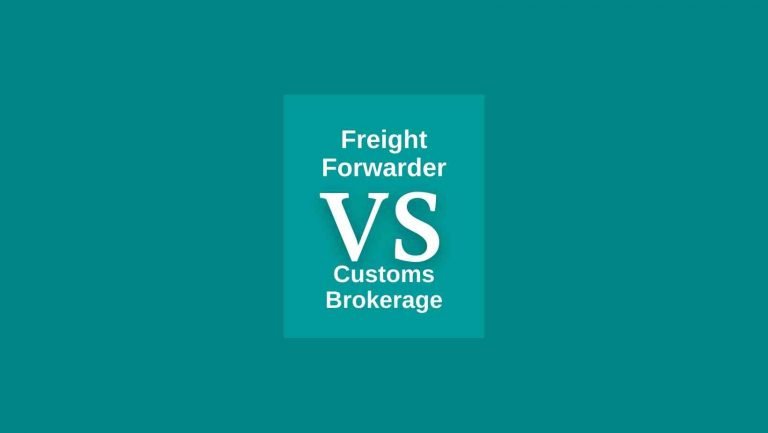If you’re importing goods into Nigeria, you will agree with me that logistics or freight forwarding can feel really overwhelming, especially when it comes to understanding how import duties and taxes are calculated.
But don’t worry, though, this guide breaks it down into simple steps so you can navigate the process like a pro. Whether you’re importing for personal use or business, you’ll find this information invaluable. Let’s dive in!
Why Are Import Duties and Taxes Important?
Import duties and taxes serve as a major revenue source for the government. It protects local industries from being overshadowed by foreign competition, and ensure that trade activities comply with national regulations.
For importers, these duties and taxes are a necessary cost of doing business, but understanding how they’re calculated can save you money and prevent costly delays at the port.
Imagine this scenario: A small business owner in Lagos orders a shipment of electronics from China. Without understanding the duties and taxes involved, they’re hit with unexpected costs at the port, throwing their budget off balance. This guide aims to help you avoid such surprises.
Key Components of Import Duties and Taxes
To calculate import duties and taxes in Nigeria, you need to understand the following key components:
- Customs Value (CIF):
- CIF stands for Cost, Insurance, and Freight. This is the total value of the goods, including:
- The cost of the goods (purchase price)
- The cost of shipping the goods to Nigeria
- Insurance charges during transit
- For example, if you purchase goods for $10,000, pay $1,000 for shipping, and $500 for insurance, your CIF value is $11,500. The CIF value forms the base for calculating all other charges.
- CIF stands for Cost, Insurance, and Freight. This is the total value of the goods, including:
- Import Duty:
- Import duty is a percentage of the CIF value. The rate varies depending on the type of goods being imported. For instance:
- Electronics might attract a 20% duty.
- Agricultural equipment could have a lower duty rate to encourage farming.
- The Nigeria Customs Service (NCS) tariff book provides detailed duty rates for different items.
- Import duty is a percentage of the CIF value. The rate varies depending on the type of goods being imported. For instance:
- Value Added Tax (VAT):
- VAT is currently 7.5% and is calculated on the CIF value plus the import duty. VAT ensures that the government collects revenue on the added value of goods.
- Excise Duty (if applicable):
- Excise duty applies to certain goods like alcohol and tobacco. It’s an additional charge aimed at regulating consumption or protecting public health.
- Other Charges:
- These include:
- Surcharges: Fees for using Nigerian ports and facilities.
- ECOWAS Trade Liberalization Scheme (ETLS): Applicable to goods traded within ECOWAS countries.
- Processing Fees: Administrative costs for clearing goods through customs.
- These include:
Step-by-Step Guide to Calculating Import Duties and Taxes
Here’s a detailed breakdown to help you calculate import duties and taxes in Nigeria:
Step 1: Determine the CIF Value
To calculate the CIF value, sum up the cost of the goods, shipping, and insurance. Let’s say:
- Cost of goods: $10,000
- Shipping: $1,000
- Insurance: $500
CIF = $10,000 + $1,000 + $500 = $11,500
Step 2: Apply the Import Duty Rate
Check the NCS tariff book for the duty rate applicable to your goods. Suppose the duty rate for your item is 20%:
Import Duty = CIF × Duty Rate Import Duty = $11,500 × 20% = $2,300
Step 3: Calculate VAT
VAT is calculated on the CIF value plus the import duty. Using the current VAT rate of 7.5%:
VAT = (CIF + Import Duty) × VAT Rate VAT = ($11,500 + $2,300) × 7.5% = $1,035
Step 4: Add Other Charges
Include any additional charges. Let’s assume the surcharge and processing fees total $200.
Step 5: Total Import Duties and Taxes
Finally, sum up all the charges:
- Import Duty: $2,300
- VAT: $1,035
- Other Charges: $200
Total = $2,300 + $1,035 + $200 = $3,535
This means you’d need to pay $3,535 in import duties and taxes.
Practical Example
Imagine you’re importing a shipment of shoes from Italy valued at $5,000. Shipping costs $800, and insurance is $200. The duty rate for shoes is 10%.
- CIF Value: $5,000 + $800 + $200 = $6,000
- Import Duty: $6,000 × 10% = $600
- VAT: ($6,000 + $600) × 7.5% = $495
- Other Charges: Let’s say $150
Total Import Duties and Taxes = $600 + $495 + $150 = $1,245
This detailed calculation helps you plan your budget and avoid surprises.
Tips to Simplify the Process
- Use the NCS Duty Calculator: The Nigeria Customs Service offers an online calculator to help estimate your charges.
- Hire a Licensed Customs Agent: A professional can guide you through the process and ensure compliance with all regulations.
- Understand Trade Agreements: Goods from ECOWAS countries may qualify for reduced or zero duties under the ETLS.
- Check for Exemptions: Certain goods, like educational materials or medical equipment, may be exempt from import duties.
Real-Life Challenges and Solutions
One common challenge is underestimating the CIF value, which can lead to disputes with customs officials. For instance, a trader importing textiles might focus only on the cost of the goods and forget to include shipping and insurance. This oversight can result in delays and additional penalties.
To avoid this, always request a detailed invoice from your supplier and double-check all cost components before shipping. If in doubt, consult with a licensed clearing agent.
Final Thoughts
Calculating import duties and taxes in Nigeria doesn’t have to be complicated. By understanding the CIF value, duty rates, VAT, and other charges, you can confidently estimate your costs and plan accordingly. Whether you’re a seasoned importer or just starting, a clear understanding of these calculations will save you time, money, and stress.
Have you ever had difficulties calculating import duties? Share your experiences in the comments below! If you have questions or need further clarification, feel free to reach out—we’re here to help.





